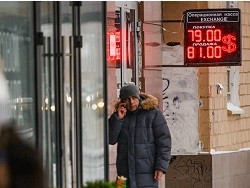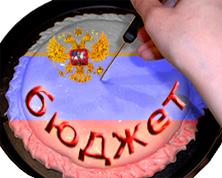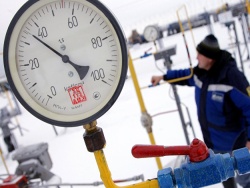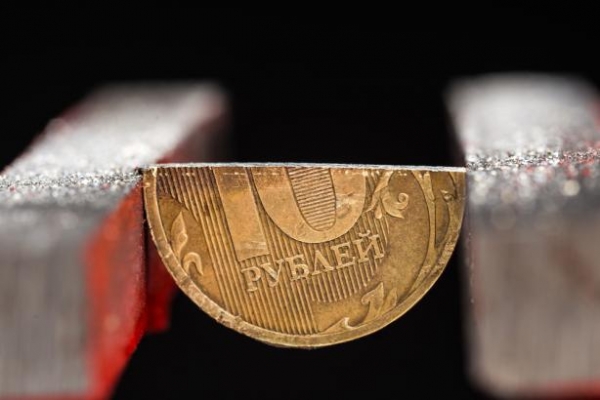
The world Bank revised the main indicators of Russian economic development in the coming years and sees the main risks in the uncertain economic and budgetary policies.
The WB has prepared three scenarios for the years 2016-2018, which proceed from the preservation of economic sanctions against Russia. In the report on the Russian economy, the world Bank provides also speculation about a possible lifting of sanctions in 2017, but notes that it will have a short and limited impact on the absence of changes in structural policy.
The Bank’s experts predict that in 2016 the poverty level will rise even if fast recovery in oil prices that will return to indicators of 2007.
Russia is unlikely to be able to fulfill budgeted 2016 target of budget deficit of 3% of GDP, the Reserve Fund will be exhausted by the end of this year, which will require increased borrowing or additional privatization, according to analysts of the Bank. The monetary policy easing by the CBR, the world Bank expects no earlier than the second half of 2016.
“The depreciation of the ruble opened to Russia the opportunity to transform the structure of its exports, but some price advantages, it may not be enough to attract investors, especially in the context of a regime of economic sanctions, if these benefits were not accompanied by a sustainable improvement of the investment climate and deep structural reforms,” write the experts of the world Bank.
However, before the presidential elections in 2018 the world Bank is not waiting for serious structural reforms that could boost potential growth of the Russian economy in the medium term.
Scenarios
In the baseline scenario the world Bank predicts the collapse of Russia’s economy in 2016, 1.9% in the average annual oil price of 37 dollars per barrel, causing the volume of real GDP will remain well below the level of 2012. In 2017, experts of Bank expect a recovery in oil prices to $ 50 and the resumption of GDP growth by 1.1%.
In December, the world Bank expected a decline of the Russian economy by 0.7% in 2016 if oil price assumption of 50 dollars per barrel and growth in 2017 by 1.3% at $ 53.
The recovery in investment activity will be slow amid weak demand for Russian exports, sanctions and reduction of public investment.
In the pessimistic scenario the economic contraction may be about 2.5% in 2016 with an average annual oil price of 30 dollars, and in 2017 the growth will not exceed 0.5% on oil price of 40 dollars per barrel. The fall in oil prices will lead to a further depreciation of the ruble, which will cause an increase in the cost of imports and a corresponding rise in consumer prices, as a result, the Bank of Russia may delay easing monetary policy until 2017.
In an optimistic scenario projected average oil price of 50 dollars and the economic contraction of 0.7% in 2016 and growth in 2017 is 1.7% at a cost of $53.
Back in 1998
The world Bank expects that in 2016 the poverty level will grow under all three scenarios — even with the rapid recovery in oil prices that will return to indicators of 2007.
In the baseline forecast, the number of poor in the current year will increase by 1.1 million people after growing 3.1 million in 2015 and will reach 20,3 million people. The poverty rate would rise to 14.2% from 13.4% in 2015 and 11.2 in 2014 and in 2017 will be close to the level of 2016.
“This increase will nullify the progress made over the last ten years, and will be the most significant increase for the period after the economic crisis of 1998-1999”, — experts say the Bank.
In the framework of the pessimistic scenario, poverty would increase to 14.7% in 2016 (21,0 million people) and reaches the maximum value of 15.2% in 2017.
Only in the optimistic variant of the forecast, perhaps, there will be a slight increase in real wages in 2017, and the share of the poor in 2017 will be kept at the level of 13.4%, close to the level of 2015, but below the maximum of 13.6% in 2016.
In 2018, pensions, salaries in budget organizations and social transfers will be indexed in full, amid pressures associated with the presidential election, says the world Bank.
The labour markets will be affected by the reduced demand for labour, unemployment will rise to 6.0 percent in 2016 from 5.6 percent in 2015, and will become an additional factor of pressure on wages.
Budget
Among the main challenges for the authorities in the medium term will remain low income and the growing deficit of the Pension Fund that carry large risks for the budget.
To adapt to long-term reduction of oil and gas revenues in addition to the overall reduction of budget expenditures is necessary to return to the practice of medium-term planning, according to the WB.
Measures taken by the government budget settings is still largely were of a temporary and non-systemic character on the background of neopredelennosti on further actions of the authorities in addressing fiscal problems, the world Bank notes.
Analysts believe that despite a new round of spending cuts announced in the beginning of the year, Russia is unlikely to put in the budget for 2016 the deficit target of 3% of GDP, while the Reserve Fund will be depleted by the end of this year. This, in turn, will require either increased borrowing or additional funds through privatization.
The deficit of the RF consolidated budget will increase this year to 4.6 percent of GDP and then to fall to 2.3 to 2.2 percent of GDP in 2017-2018.
In the pessimistic scenario in 2016, the consolidated budget deficit will reach 5.6% of GDP 3.6% of GDP in 2017 and 2.7% of GDP in 2018. In an optimistic predicted reduction in the budget deficit at a faster rate to 0.9% of GDP in 2017-2018.








